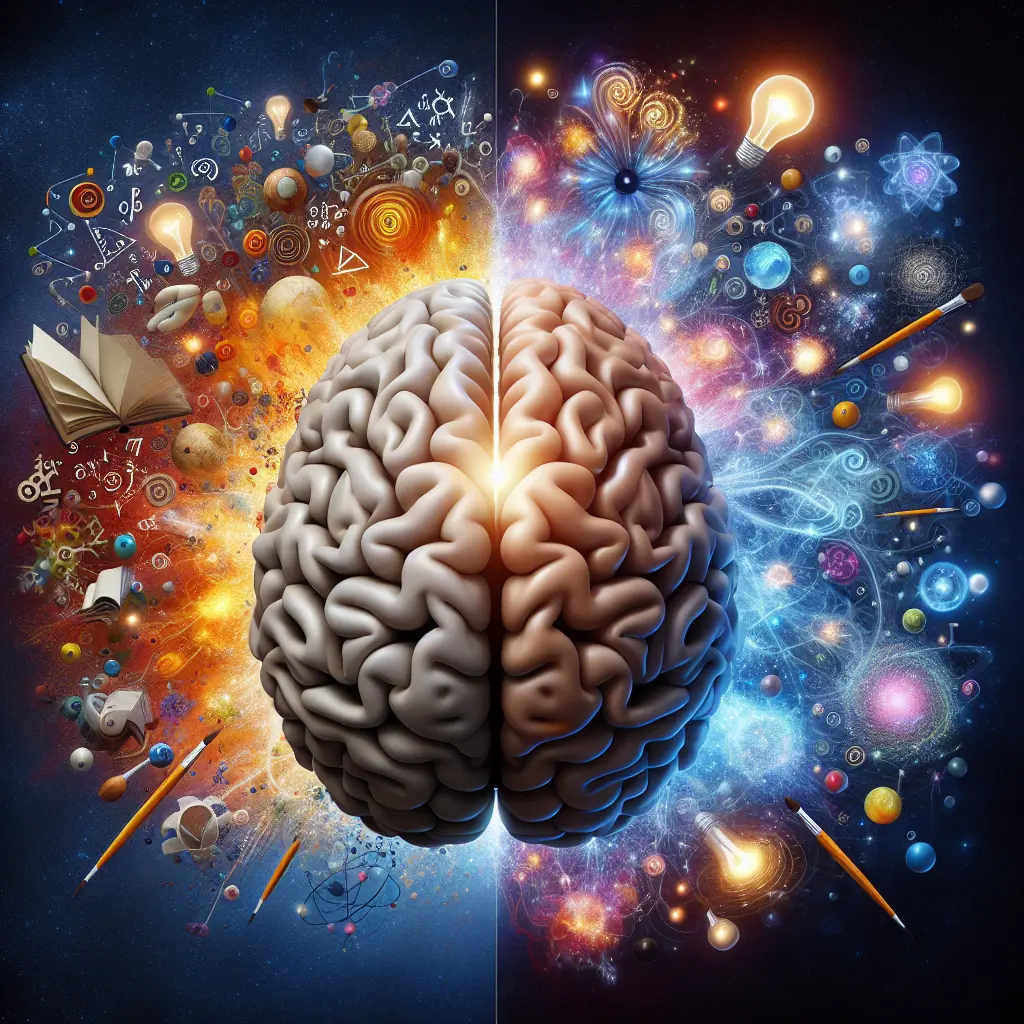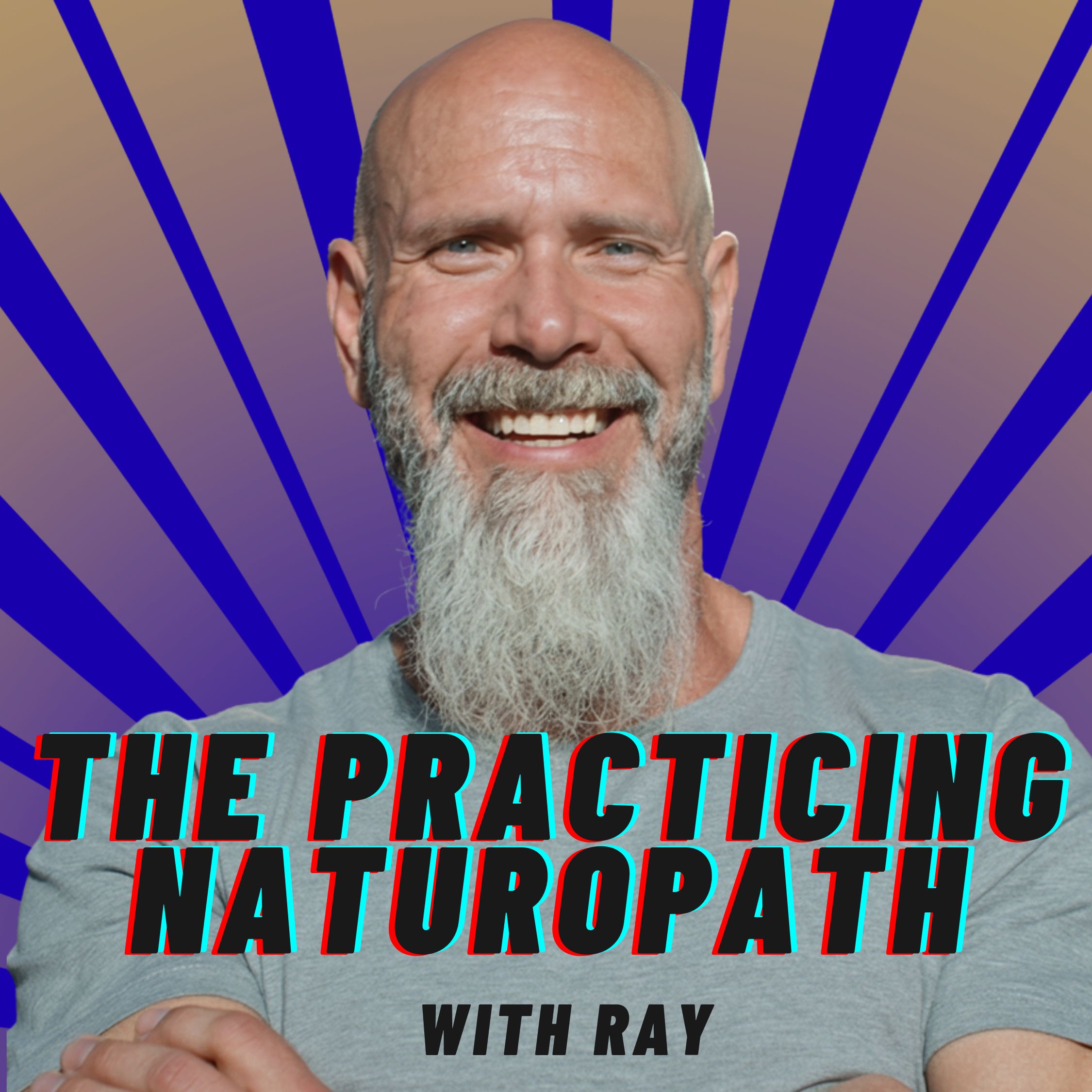Beyond the Mind: The Connection Between Food, Health, and Stoic Philosophy
The Practicing Naturopathic Philosopher Welcome you to a deeper exploration of the profound connection between our physical well-being and our mental state, viewed through the lens of Stoic philosophy. This blog post expands on the themes discussed in Episode 5: Letter 2: On Seneca: On Discursiveness of Reading📚📕📘 of The Practicing Philosophers Podcast. In that episode, we touched upon Seneca's wisdom regarding focus, discipline, and the importance of understanding oneself. Here, we delve further into how our dietary choices and lifestyle habits significantly impact our mental clarity, resilience, and overall wellness, ultimately aligning with Stoic principles for a more fulfilling life. Reading this article will give and serve you a deeper understanding aka comprehension of your better self that you are working towards on a day in and day out level.
Introduction: Bridging🌉 the Gap of Stoicism, Health, and your Food Eating Plan that makes you healthy, wealthy and wise-- to -- NO Surprise when YOU ------- Do The Work!
Stoicism, often perceived as a grounded philosophy solely focused on critical thinking, mental fortitude and emotional control, really holds profound insights into the importance of your physical health. While Stoics like Seneca and Epictetus emphasized controlling our internal responses to external events, they also recognized the body as the vessel through which we experience the world.
A healthy body, according to this perspective, is not merely a matter of physical appearance, but a crucial foundation for mental clarity, emotional stability, and the ability to live virtuously while pursuing your purpose. In our modern world we often overlook this crucial connection. We tend to compartmentalize our lives, separating physical health from mental well-being. These are tied together like your shoe laces.
We may diligently pursue mindfulness practices while simultaneously consuming processed foods and leading sedentary lifestyles which leads to disease, sickness and death. This brutal and real disconnect hinders our progress toward living a good life, one characterized by inner peace, wisdom, and virtue of our actions. This blog post aims to bridge this gap for you, demonstrating how mindfully eating and creating healthy habits will actively contribute to living a good life.
Description of this AI Image so you can possibly relate to it as an Audience Member searching relentlessly for answers. Here is an Alt Image Descriptions: Look at this image. Both sides of the image feature a calm, reflective body of water in the foreground, mirroring the sky above with distinct horizontal lines. This represents our darkness and our light. On the far left and right edges of the composition, silhouetted pine trees create a dark, jagged tree line against the horizon. The overall mood is dreamlike and expansive, with a strong sense of contrast between the tranquil night and the energetic, colorful sky. The style is reminiscent of 1980s synth wave aesthetics, characterized by bold colors and clean, graphic forms. The perspective is a wide, slightly elevated view looking across the water towards the horizon.
Seneca's Holistic View of Health: Beyond the Mind...
Seneca, a prominent Stoic philosopher, statesman, and playwright, advocated for a holistic approach to health. He believed that true wellness is encompassed not only with physical fitness but also with mental and spiritual well-being. In his letters, Seneca frequently emphasized the importance of temperance(self-control), and moderation in all aspects of life, including diet and exercise.
He wasn't a proponent of extreme asceticism, but rather an aligned approach that recognized the body's needs while avoiding excessive indulgence as away of escape. Seneca understood that physical ailments could directly impact mental clarity and emotional stability. We all must do better then we think we can. A body burdened by poor nutrition or lack of exercise could become a source of distraction, hindering our ability to focus on virtue, judgement and reason during times.
He encouraged his readers to cultivate a disciplined lifestyle that supported both physical and mental health, recognizing that they were inextricably linked. I believe they both coincide each other. Furthermore, Seneca emphasized the importance of gratitude for the health we do possess. He viewed health as a gift, something to be cherished and actively maintained, not taken for granted. This perspective aligns with the Stoic principle of appreciating what we have and focusing on what we can control, rather than lamenting what we lack. Seneca understood that true freedom came not from external possessions or circumstances, but from mastering ourselves through wisdom, both in body and in mind. Think how you can do this for yourself. Where can you start getting some clarity on your physical and mental health. What do you need to stop doing? (at the same time) What can you start doing right now? HMM!
The Modern Dilemma: Dopamine Distractions, Junky Food, and Mental Clarity through the distraction of the Noise(S)
In today's fast-paced world, in the age of dramatic distraction, we are constantly bombarded with distractions and temptations that can easily derail our efforts to maintain a healthy lifestyle. Epictetus called these distractions from our focus "Impressions." These impressions are the manners that we face in our life and how we react through them with a practiced response connects us to our future self. This is the one we would want to impress because he's the one we are looking to become...
In our present time, the prevalence of processed foods, readily available fast food options, and endless entertainment options contribute to a fast culture of instant fix-gratification and an instant fix-overconsumption. This constant barrage of stimuli can overwhelm our senses, cloud our judgment, and hinder our ability to focus on what truly matters. Junk food, in particular, poses a significant threat to our mental clarity. As we eat out of a bag, a box, and a can as this passes as food for us, really?
The extremely high levels of sugar, flour, seed oils, unhealthy fats, and mindfully artificial additives that are addicting are found in many processed foods which will disrupt your cognitive brain function, leading to mood swings, fatigue, forgetfulness, foggyness, brain impairment, and decreased attention span which can be dangerous. We basically become idiots with our own devices.
These negative effects can make it more difficult to practice Stoic principles like managing self-control, living a disciplined life, fairness of our reasoning, and mindfulness of focus. Moreover, the addictive nature of this junk(y) food can create a vicious cycle, where we turn to unhealthy eating like a drug addict does to his addictions that rot him from the inside/out. We use these bad habits as a coping mechanism to a habitual triggered stress reaction or an emotional discomfort we haven't dealt with, yet, further exacerbating the problem on repeat. As a philosopher we MUST critically think and find solutions that create better responses.
The modern reliance on technology also contributes to this dilemma. Constant: ding, bing, bang, bong -- notifications, social media updates, and endless streaming options can fragment our attention and make it easily challenging to cultivate the focus and discipline necessary for leading you to the life you want. Overconsumption of information can lead to mental fatigue, anxiety, and a sense of being overwhelmed with all the choices.
To overcome these challenges, we must consciously cultivate mindset habits that create betterments and improvements in out life, and we MUST resist the allure of instant gratification. These are equal to the "impressions," Seneca speaks about. This requires a deliberate, focused effort to disconnect from these distractions, prioritize healthy eating habit with focus and clarity, and engage in activities that promote mental clarity and well-being. When faced with a problem go for an intense walk and i believe you will figure out the best answer for you. It will not be easy, but the answer will come as your feet move your brain.
Description of this AI Image so you can possibly relate to it as an Audience Member searching relentlessly for answers. Here is an Alt Image Descriptions: A digital painting of a glowing, ethereal human figure walking through a golden field at sunset. The figure is translucent and radiates a bright with the suns energy, warm light from its chest is emitted, with a halo of concentric golden rings encircling its head. The landscape features a serene blue lake reflecting the sky, lush green trees, and a distant treeline. The foreground is filled with small, softly glowing flowers in shades of yellow and red. The sky transitions from a deep blue at the top to a warm orange and yellow near the horizon, creating a dreamlike and spiritual atmosphere. The lighting is dramatic, with the setting sun casting long shadows and illuminating the scene with a powerful, golden glow that embraces life. The overall style is painterly with visible brushstrokes, evoking a sense of wonder and transcendence.
Stoic Principles for a Healthy Life: Laser Target Focus and Consistent Consistency
Many core Stoic principles can guide us and drive us once implemented toward a healthier and more fulfilling life. Focusing on what you specifically want and consistency of doing what must be done are arguably the most crucial. Stoicism emphasizes the importance of directing our attention toward what we can control – our thoughts, our emotions, our actions, and our intentions – and accepting what we cannot accept -- everything else we cannot control. This principle can be directly applied to our health habits.
We can control what we eat, how often we exercise, and how much water we drink. By focusing our attention on these controllable factors, we can take proactive steps to improve our physical and mental well-being daily. You are 100% responsible for you. No one is coming to save you other than you. No one will care about your life more than you. Consistency is equally important. The Stoics believed that virtue is not achieved through sporadic acts of goodness but through consistent, virtuous behaviors over time.
Similarly, a healthy lifestyle is built on healthy meals, daily workouts, consistent, sustainable daily habits that feed us a nutrient dense life are up to us. This requires aggressive patience, a mindset of a do-it-daily discipline, and a long-term, clear vision of what we want to accomplish with clarity while we allow time into the equation. The Stoic concept of "amor fati," or loving one's fate, can also be applied to our health journey as we make wise decisions every single day. The days you don't you comprehend the price.
We will certainly face setbacks, temptations, and health challenges along our wonderful way. We MUSt work to over come these. These can all make us better when we get over them, through them and learn from them as lessons. We can buffer these with proper planning and daily actions. Rather than becoming discouraged, we can embrace these obstacles as opportunities for growth and self-improvement. By accepting our imperfections and striving for continuous progress, we can cultivate resilience and maintain our devotion to a healthy lifestyle, even in the face of adversity that will lead you towards freedom.
Furthermore, the Stoic emphasis on reason, fairness and self-awareness can help us make educated and informed decisions about our health. By comprehending the impact of our 'food eating plan' and 'planned out lifestyle habit's that help and support our physical and mental well-being, we can make conscious choices that align with our formed principles, values and standards.
Practicing Tips: They Will Nourish the Body and the Mind your Soul Power
Integrating Stoic principles into our daily lives can involve a number of practical strategies focused on nourishing both body and mind:
- Mindfulness while Eating: Practice investing the intention of the attention you give your food when you eat it, chewing 30 times before swallowing, savoring each bite with each significant chew, and recognizing your body's hunger pangs and fullness cues. Avoid distractions while eating and focus on the present moment with yourself or your partner.
- Prioritize Whole Foods: Choose whole, unprocessed foods over refined and processed options. Focus on fruits, vegetables, and lean proteins. If it's in a bag, or a box avoid it.
- Limit your Sugar(High Fructose Corn Syrup) and Processed Food Intake: Reduce your intake of sugary drinks, processed snacks, and fast food. These foods can negatively impact your mood, brain, energy levels, and cognitive function to critically think.
- Regular Exercise: Engage in regular physical activity that you enjoy-- every single day, if possible. This could include weight lifting heavier weights, body-weight exercises for many reps, fast walking for 45 minutes, jogging, swimming laps, yoga class, martial arts or any other activities that get you to force yourself outside of your comfort zone.
- Adequate Sleep: Prioritize getting 6-8 hours of quality sleep each night, if possible. Sleep is essential for physical and mental restoration. If you cannot get it, I get it. Even if I do not sleep well. I will work to be as ware as possible as I play a gam called "Playing Poorly Well," when I get a bad night of sleep and have to get stuff done. This becomes a mindset shift that I have adopted when I haven't slept soundly. I move slower and am more focused on what is important and needs to get done, because I have to choose where my energy will be going strategically. HMM! Think on this...
- Mindfulness Practice: Incorporate mindfulness practices into your daily routine, such as deep breathing exercises, sit or standing tall in nature with your natural awareness, go forest bathing to immerse yourself in your environment, go on a mini-hike, or journal on your goals or future vision while in a coffee shop.
- Limit Screen Time: Reduce your blue light exposure to screens, especially 3 hours before bed. The blue light emitted from electronic devices can interfere with sleep and keep you awake all night. This technology can be a disruption to human activity in the evening. if you have "Blue Blocking" glasses, use them daily.
- Invest Your Time with Nature: Connect with nature by spending time outdoors. Nature has been shown to reduce stress and improve your mood just by appreciating birds, animals and other wildlife. Watching animals, your pets, birds and admiring the breeze in the trees can release the feel good chemicals in the body, mind and soul. AHH! Feeling better already...
- Next Cultivate Gratitude: Practice gratitude by reflecting on the things you are thankful for each day. There is always something small and big we can find or force ourselves to be grateful for. Each day find something new on your gratitude list of 5 or 10 things. Gratitude can help shift your focus from what you lack to what you currently have. We are always now here in the present.
- The Practice of Self-Control: Develop your ability to resist impulsive desires (impressions) and make conscious connection to your choices that align with your inner core values: "Who You Are?" and "What Do You Stand For?" Do you really know?
Description of this AI Image so you can possibly relate to it as an Audience Member searching relentlessly for answers. Here is an Alt Image Descriptions: A highly detailed, realistic depiction of Socrates, with a flowing white beard and hair, clad in a simple, draped toga, seated centrally on white marble steps. He is gesturing with his right hand, engaged in discourse with a diverse crowd of men and women of various ages and ethnicities surrounding him lost in thought. The crowd is seated on the steps and the ground, their faces turned towards Socrates with expressions of rapt attention, contemplation, aloofness and curiosity. The setting appears to be an ancient Greek amphitheater or courtyard, with large classical columns visible in the background. The lighting is soft and natural, casting a gentle glow on the scene and highlighting the textures of the fabric and skin. The overall mood is one of intellectual engagement and profound discussion. The perspective is slightly from below, emphasizing Socrates' position as the central figure and intellectual leader(frozen in time with his wisdom).
Choosing Quality: Food, Thoughts, and Actions ( THIS IS REPEATED)
The Stoic emphasis on virtue and excellence extends beyond our moral character and applies to every aspect of our lives, including our choices regarding food, thought, and action. Choosing quality over quantity is a fundamental principle that can significantly impact your overall well-being. When it comes to food, this means prioritizing whole, unprocessed foods over refined and processed food.
Instead of filling up on empty calories from sugary drinks or processed snacks, we can choose nutrient-rich foods that nourish our bodies and support optimal brain function so we can get more done. This also means being mindful of the quality of the ingredients we consume. Opting for organic, locally sourced produce can minimize our exposure to harmful pesticides and toxins.
Similarly, when it comes to our thoughts, we can choose to focus on positive, constructive ideas rather than dwelling on negative or unproductive thoughts. This involves cultivating a mindset of optimism, gratitude, and self-compassion. We can also choose to engage with information that is accurate, reliable, and enriching, rather than consuming sensationalized or misleading content like most social media posts that work to make us emotionally upset. It's up to us to be in control of ourselves.
In our daily actions, we can choose to prioritize activities that align with our values and contribute to our personal growth and well-being. This means investing our time and energy into meaningful and specific hobbies, good relationships, pursuing our passions, and making a positive impact on the world around us with every encounter we have with another human being. By consistently choosing quality connections over quantity connection -- in all aspects of our lives, we can cultivate a sense of purpose, fulfillment, and inner peacefulness.
Consistency Over Intensity: A Stoic Approach to Daily Self-Improvement
In the pursuit of self-improvement, self-development , the Stoics championed consistency over fleeting bursts of intensity that leaves us flat. This principle is particularly relevant to our health journey. Many people fall into the trap of embarking on extreme diets or workout regimens that are unsustainable in the long run. While these intense efforts may produce short-term results, they often lead to burnout, frustration, and ultimately return us back to our to old crappy habits.
The Stoic approach, on the other hand, emphasizes gradual, consistent progress over time. This means focusing on building sustainable habits that can be maintained over the long term, rather than striving for rapid transformations. For example, instead of drastically cutting calories or eliminating entire food groups, we can make small, incremental changes to our diet, such as adding more fruits and vegetables or reducing our intake of sugary drinks that eventually cause a crash.
Similarly, instead of pushing ourselves to exhaustion in the gym, we can focus on consistent, moderate exercise that we enjoy and can realistically maintain. The key is to create a sustainable lifestyle that supports our physical and mental well-being over the long haul. This requires patience, discipline, and a willingness to embrace slow and steady progress.
The Stoics understood that true transformation is a gradual process that requires consistent effort and a commitment to continuous self-improvement. The Japanese have a word for this which is "Kaizen" which is continuous improvement By focusing on consistency over intensity, we can cultivate lasting habits that contribute to a healthier and more fulfilling life.
Description of this AI Image so you can possibly relate to it as an Audience Member searching relentlessly for answers. Here is an Alt Image Descriptions: A hyper realistic, highly detailed, cinematic depiction of a human brain, split down the middle, with each hemisphere radiating a different type of energy. The left hemisphere is surrounded by swirling fiery oranges, yellows, and reds, interspersed with symbols of learning and logic: an open book, pencils, gears, scientific formulas, and lightbulbs. The right hemisphere is enveloped in cool blues, purples, and teals, featuring ethereal nebulae, glowing orbs, atomic structures, and abstract artistic swirls, with a few lightbulbs and pencils also present. The brain itself is rendered with incredible detail, showcasing its gyri and sulci, with a bright, glowing light emanating from its center, connecting the two sides. The background is a dark, star-filled galaxy. The composition is centered and symmetrical, with a dramatic, almost divine lighting that highlights the textures of the brain and the vibrant energies surrounding it. The overall mood is one of awe-inspiring intellectual and creative power, with a deep, cosmic feel of the Right-Brain being the side that dominates the over the will.
Feel the Fear and Feel the Courage and... Self-Improve Anyway...
Courage, one of the four cardinal virtues in Stoicism, plays a vital role in the journey of self-improvement. It's not merely about grand, heroic acts but also about the everyday courage to face challenges, changes, adversity, overcome chosen obstacles, and step outside of our comfort zones to get better. When it comes to health, courage is needed to resist temptations, break bad habits, and persevere through difficult workouts or dietary changes that make us better. This is why we do them so we can get better. This is what life demands of you.
It takes courage to confront our weaknesses and acknowledge areas where we need to improve. It takes courage to say "No" to unhealthy choices and prioritize our well-being, even when it's inconvenient or unpopular. Furthermore, courage is essential for maintaining a positive attitude in the face of setbacks. Also, work to take the mindset that set backs can eventually be set ups for a better future. Imagine if we looked at all the hard work this way. (worth a re-read)
We may experience moments of doubt, frustration, or discouragement along the way. It takes courage to persevere through these challenges and maintain our commitment to our goals. The Stoics believed that courage is not the absence of fear but the ability to act in accordance with our virtues despite fear. This means facing our fears head-on and not allowing them to dictate our life choices. By cultivating the courage to care, we can overcome obstacles to change us, embrace challenges that create us, and continue to strive for self-improvement, even when the path ahead is difficult.
Wealth, and Wellness
Stoicism teaches us that true wealth lies not in material possessions but in inner contentment and virtue of being your best self. This perspective is particularly relevant to our understanding of wellness. In a society that often equates health with expensive treatments, gym memberships, and specialized diets, it's easy to fall into the trap of believing that we need vast resources to achieve optimal well-being. it's simplicity on repeat.
However, the Stoics remind us that many of the most important aspects of health are free and readily available to all. I've discussed them in these podcast episodes. Listen in deeply. Access to clean air and water, time spent in nature, and the ability to cultivate meaningful relationships are all essential for our well-being and they require little or no financial investment to do so. Furthermore, the Stoic emphasis on self-control and moderation can help us avoid overspending on unnecessary goods and services that may actually detract from our health.
By focusing on simple, sustainable habits that promote well-being, we can cultivate a sense of contentment and gratitude, regardless of our financial circumstances. True wealth, according to the Stoics, is the ability to live a virtuous and fulfilling life, regardless of external factors.
This includes cultivating a healthy body and mind, practicing self-control with all that we do, and finding joy and curiosity in simple pleasures. By shifting our focus from material possessions to inner contentment, we can unlock a deeper sense of well-being and appreciate the true riches of life.
Description of this AI Image so you can possibly relate to it as an Audience Member searching relentlessly for answers. Here is an Alt Image Descriptions: A young man in a dark blue t-shirt and black shorts squats in a cemetery, straining to lift a stack of five rectangular grey stone slabs above his head that represent the dashes of his life. He is positioned between two large, imposing gravestones that represent From Birth ---- to Death. The left gravestone features a prominent, deeply carved letter "B" and has inscriptions on its surface that could represent your life. The year you were born and the year you will die. The right gravestone is similarly shaped and carved with a large "D". The gravestones are weathered and appear old, with some moss growing on their bases. The man's face is tilted upwards, focused on the heavy load.
Building a Better You: A Stoic Journey
The journey toward a healthier and more fulfilling you is a continuous process of self-improvement, guided by Stoic principles. It's not about achieving perfection but about striving to become the best version of ourselves, one day at a time. You can do this! Set your mind right and do the right thing to feel right.
This requires self-awareness of how we think, discipline of what we are doing, and a willingness to learn from our continuous mistakes until we course correct them for improvements. Also, to get a mis-take learners high from working toward getting better until we do get better. Imagine if you could get excited about learning from your failures. When you do something that clearly isn't your best-- a certain statement you can say is "Needs Work," which can then help you go practice, instead of a debilitating statement and temper tantrum that takes us out of the game.
Instead, of the victim of "Why Me?" Answer this with a declarative statement of "Yes, definitely me! I'm excited about this opportunity to improve!" I have the choice of getting better. Excellent, what's next for me" The make a plan and work that plan.
It also requires a devotion to living in accordance with your values and making choice decisions that align with your long-term goals. The Stoics believed that virtue is the ultimate goal of human life and that all of our actions should be directed toward cultivating virtue. This includes cultivating a healthy body and mind, practicing self-control, and making a positive impact on the world around us.
By embracing the philosophers journey, we can transform our lives from the inside out, cultivating inner peace, resilience, and a sense of purpose. This is not a destination but a lifelong process of continuous growth and inner self-discovery. By embracing the challenges and working to leverage the opportunities that come our way, we can continue to evolve and become the best versions of ourselves.
Conclusion: Integrating Stoicism for Total Well-being. If you have read down to the bottom -- it's time to rise up to the Top. (Read-On)
As we've explored, the connection between food, health, and Stoic philosophy we have learned that this is about you becoming undeniable to live the greatest life that you want to envision through your daily creation of your clear and set standards. Seneca and other Philosophers understood the profound impact of our physical well-being on our mental state and your ability to live a virtuous life is a choice. By integrating Stoic principles into our daily habits, we can cultivate a holistic sense of well-being that encompasses both body and mind. This involves making conscious and aware choices about what we eat, how long we exercise, and how we manage our emotional thoughts with the courage to change when needed or demanded from us. It also involves cultivating virtues such as self-control(temperance), courage(fortitude), and gratitude. Ultimately, the goal is to live a life of purpose, meaning, and have good inner peace through conflict resolution, guided by the wisdom of your ever evolving process of philosophy. We invite you to listen to Episode 5: Letter 2: On Seneca: On Discursiveness of Reading📚📕📘 for a deeper dive into Seneca's teachings and practical advice on applying these principles into your life. By embracing the Stoic path, we can unlock our full potential and live a life of greater health, happiness, and fulfillment. It will not always be perfect but it will be the way... This is the way towards working on perfect that makes your life grow from good to great to world class. It's never to late.





